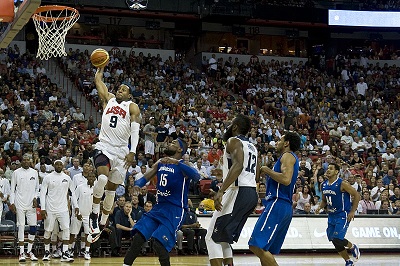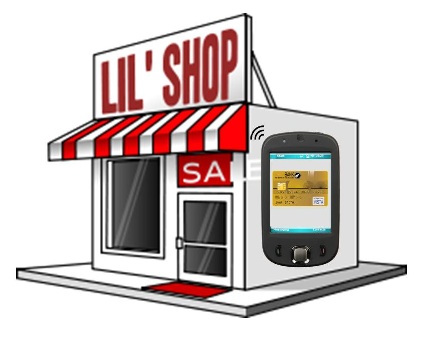The NBA Finals MVP has declared that wearables are exceptionally helpful to athletes.
Andre Iguodala has given tremendous praise to wearable technology when he recently spoke about the role that it played in the title win by the Golden State Warriors.
Wearables have been increasing in popularity among athletic teams and individual athletes, alike.
Iguodala spoke at a panel, recently, where he said that “The wearable market helps athletes more than anybody. You can say they helped us win a championship.” This is no small statement, as wearable technology was just credited with assisting the athletes to an actual championship win. Teams have been using these mobile devices at a growing rate to not only better understand the performance of the players, but also to help them to reduce the risk of injury.
The NBA player also recently visited the headquarters of Jawbone in San Francisco for more wearable technology.
 While there, he met with Hosain Rahman, the CEO of Jawbone. This allowed him to share the personal sleep data that had been collected by Iguodala’s UP activity tracker and the related mobile application. An analysis was conducted comparing the amount of rest that the player was able to receive and his performance during a game the next day.
While there, he met with Hosain Rahman, the CEO of Jawbone. This allowed him to share the personal sleep data that had been collected by Iguodala’s UP activity tracker and the related mobile application. An analysis was conducted comparing the amount of rest that the player was able to receive and his performance during a game the next day.
What they discovered was that when Iguodala was able to receive at least eight hours of sleep on the night before playing a game, he was able to play for an average of 12 percent more minutes per game, and his scoring was 29 percent higher per minute. Moreover, he was also able to boost his free-throw shooting by an average of 9 percent and he saw a 2 percent increase in his three-point shots. That minimum of eight hours of sleep also led to a 37 percent decrease in his turnovers and a 45 percent decrease in personal fouls.
While it was not the wearable technology, itself, that allowed for the improvement in Iguodala’s performance, the device is what collects the data that can then be analyzed in order to understand the relationship between factors such as sleep and other health and wellbeing stats with his ability to play during a game.
Small merchants have yet to show enthusiasm for mobile payments
Mobile commerce is having difficulty gaining traction among small businesses in the United States. According to the U.S. Census Bureau, these companies account for more than 90% of the businesses in the country, but they have yet to show significant support for mobile payments. Large retailers and banks, however, have become quite enthusiastic about mobile commerce, offering consumers services that allow them to manage their money and shop directly from the smartphones and tablets.
NFC technology proves somewhat unattractive for small businesses
One of the reasons that small businesses may not be supporting mobile payments is because NFC technology comprises much of the mobile commerce infrastructure. NFC technology allows digital information to be transmitted over short distances and it has become a powerful tool for the mobile payments space. Most prominent payment services, such as Apple Pay, make use of this technology in order to facilitate transactions, but this requires that physical merchants have an NFC-enabled terminal that is able to interact with this technology.
EMV standards may drive the adoption of mobile commerce among retailers
 For small businesses, adoption of NFC technology may be too costly, which has stunted the growth of mobile commerce among some merchants. An alternative, however, is new Europay, MasterCard, and Visa (EMV) standards, which retailers are required to embrace by October 1. These standards allow all retailers to adopt new payment terminals that support EMV cards. This will allow retailers to also embrace mobile payments, because EMV-enabled cards will be associated with the payment services being used by consumers.
For small businesses, adoption of NFC technology may be too costly, which has stunted the growth of mobile commerce among some merchants. An alternative, however, is new Europay, MasterCard, and Visa (EMV) standards, which retailers are required to embrace by October 1. These standards allow all retailers to adopt new payment terminals that support EMV cards. This will allow retailers to also embrace mobile payments, because EMV-enabled cards will be associated with the payment services being used by consumers.
Small retailers have little interest in EMV standards
While small retailers will also have to adopt EMV-enabled terminals, many have yet to outline plans to do so, partly due to high costs. If retailers do not embrace the new EMV standards, they will be held liable for any fraudulent purchases that are made through their establishments. Once small retailers begin feeling the consequences of these fraudulent purchases, however, they are likely to adopt the standards and begin acquiring EMV-enabled terminals.
 While there, he met with Hosain Rahman, the CEO of Jawbone. This allowed him to share the personal sleep data that had been collected by Iguodala’s UP activity tracker and the related mobile application. An analysis was conducted comparing the amount of rest that the player was able to receive and his performance during a game the next day.
While there, he met with Hosain Rahman, the CEO of Jawbone. This allowed him to share the personal sleep data that had been collected by Iguodala’s UP activity tracker and the related mobile application. An analysis was conducted comparing the amount of rest that the player was able to receive and his performance during a game the next day.
 For small businesses, adoption of NFC technology may be too costly, which has stunted the growth of
For small businesses, adoption of NFC technology may be too costly, which has stunted the growth of 